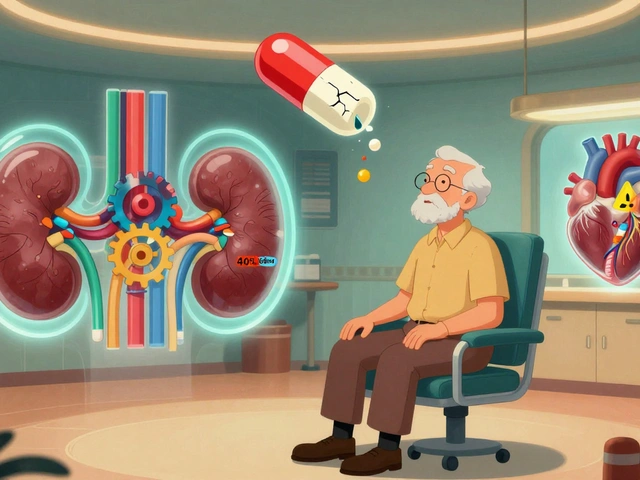Lasix alternatives: what works when furosemide isn’t right
If your doctor suggests switching from Lasix (furosemide) or you’re looking for other ways to manage fluid buildup, you have options. Some people need a different prescription diuretic; others can combine medicine changes with diet and simple habits. Below I’ll lay out common drug swaps, practical lifestyle fixes, and quick safety tips so you can talk clearly with your clinician.
Common prescription alternatives
Not every diuretic works the same. Lasix is a loop diuretic, which is strong and works fast. If Lasix causes side effects or isn’t ideal, doctors often consider:
- Bumetanide and torsemide: These are other loop diuretics. They act like Lasix but can be more predictable in some people. Dosage and how long they last differ, so your doctor will match one to your needs.
- Thiazide diuretics (hydrochlorothiazide, chlorthalidone): These are milder and work well for high blood pressure and mild fluid retention. Chlorthalidone lasts longer than hydrochlorothiazide and may control blood pressure better for some people.
- Potassium-sparing diuretics (spironolactone, amiloride): These are weaker but help keep potassium from dropping. Spironolactone is also used when heart failure causes fluid overload because it offers added hormonal benefits.
- Combination approaches: Sometimes doctors use a loop diuretic plus a thiazide to break stubborn fluid retention. That’s monitored closely because of dehydration and electrolyte shifts.
Lifestyle and natural options that help
Medicine changes aren’t the only route. Small daily choices can lower fluid buildup and reduce how much diuretic you need.
- Cut salt: Reducing sodium to under 2,000 mg a day often makes a real difference. Start by avoiding processed foods and using herbs instead of salt.
- Watch fluids: Your doctor may suggest limiting drinks if fluid retention is severe. Follow their guidance—don’t self-restrict too much.
- Compression stockings and leg elevation: For swelling in the legs, compression can help move fluid back to the bloodstream so kidneys can remove it.
- Move more and weigh daily: Regular activity helps circulation. Daily weight checks detect fluid gain early so you and your doctor can adjust treatment before symptoms worsen.
- Avoid NSAIDs and some supplements: Ibuprofen and similar drugs can reduce diuretic effect. Herbal diuretics like dandelion or green tea offer mild effects but vary in strength and can interact with meds—ask your clinician before trying them.
If you have kidney disease, heart failure, or low blood pressure, any switch needs supervision. Never stop Lasix suddenly without talking to your doctor—changes should be gradual and monitored with blood tests to check electrolytes and kidney function. Bring questions to your next visit: ask why a change is suggested, what to watch for, and how follow-up will happen. That keeps treatment safe and effective.
 29 April 2025
29 April 2025
Top Alternatives to Lasix for Edema Relief: Real Case Studies and Medication Options
Struggling with edema and can’t use Lasix? This article dives deep into real-life cases, exploring different medications people have tried instead of Lasix, plus practical tips and fascinating facts about managing fluid retention. Whether you’re dealing with heart, kidney, or liver issues, discover which alternatives have worked for others and get guidance on making the best choice for your situation. Packed with clear explanations, practical advice, and a handy resource link, this guide is the go-to for anyone searching for effective ways to handle edema without Lasix.
 7 January 2025
7 January 2025
Top Lasix Alternatives for Managing Edema and Hypertension
The article explores ten alternatives to Lasix, a popular diuretic used for managing edema and hypertension. It delves into the details of each medication, discussing their mechanisms, benefits, and potential side effects. This comprehensive guide helps patients and healthcare providers make informed decisions about treatment options. Included are comparisons of effectiveness and safety for informed treatment choice.
Latest Posts
-

How to Speak Up About Medication Side Effects During Treatment
-

Medication Dosage Adjustments for Aging Bodies and Organs
-

Mood and Behavioral Changes from Corticosteroids: Understanding the Psychosis Risk
-

How to Reduce Costs for Specialty Medications and Injectables
-

Leprosy and Human Rights: Advancing Equality and Dignity

15